Does Becoming a Nurse Practically Mean to Be in the Front Line?
Written by Czech Hospital Placements on Wednesday, June 29, 2016
Nurse Mentor Motivation Patients Medical Team Healthcare Professionals Care Front Line
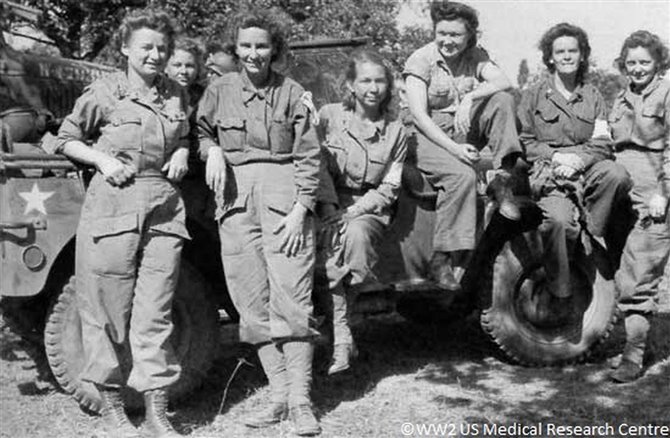
Does becoming a nurse practically mean to be in the front line? As a nurse you are in the direct contact with patients and their families during one of the most difficult times for them and in the same time you must work together with other healthcare professionals fully concentrated on your common goal. How do the professional nurses of the CHP Program think about their path?
Their TO DO list never ends
It goes without saying, that being a nurse is not a work for everyone. Why? Try to imagine that you have a never ending list ot tasks and duties ahead of you everyday with moments where you have so much work that there is simply no time for food or drink and visiting a restroom seems to be a luxury. Well, welcome to the world of nurses. To give you an example General Nurse Lucie from the Resuscitation Unit for Adults, where she takes care of people after car accidents, fall from heights, after almost drowning, intoxication, sudden stasis, large surgeries such as lung transplantation, surgeries of nervous system and brain, describes what her usual day looks like in her unit:
“When I take over the patient after the night-shift I administer the medication, provide complex nursing and hygienic care (hygiene of the body, change the bed sheets, reapplication of bandages, rotate the patients’ position in bed, and the changing of invasive inputs…). Patients in our department are in severe life threatening conditions. So I also perform the ventilation of the patient dependent on life support, circulation support, sedated patients, dialyzed patient, and much more. If there is a phone call, I have to go to the Emergency Care Department where I provide the patient with the proper care e.g. intubate, give an arterial catheter, or venous catheter to the patient. After the basic diagnose is conducted or a CT examination, according to the results it is determined whether the patient will be transported to our department or directly to an OR."
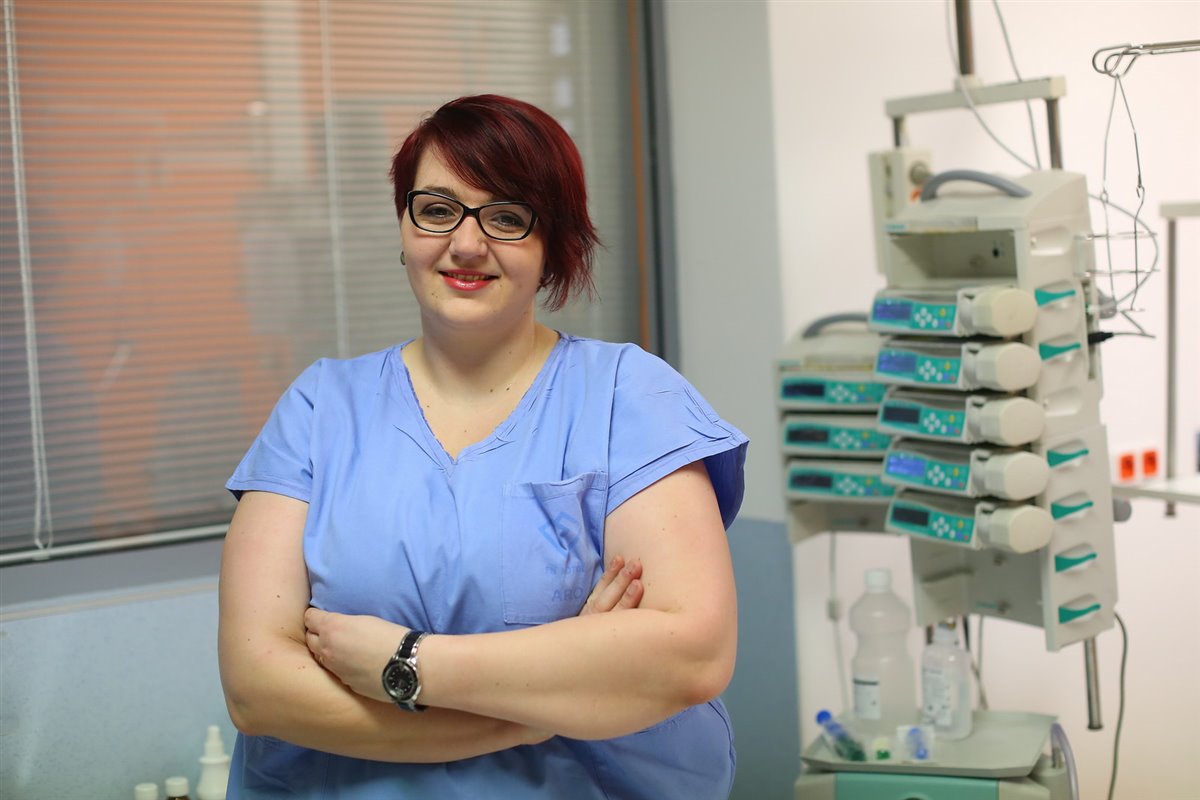
The daily routine of Lucie and nurses working in other departments vary according to the conditions and diagnoses of their patients. But the ever present aspect of the work of every nurse is the care they provide. Thanks to the intensity of their profession and the fact that they perform numerous tasks every day, nurses quickly gain experience and improve their analytical skills, which allows them swiftly to recognize current health conditions and mood of their patients. This type of knowledge can prove extremely valuable as it can help doctors and other team members during their jobs and aim them in the right direction when it comes to diagnosis and treatment of the particular patient.
The A-Team
Nurses as team members fulfill an irreplacable role, they execute a vast majority of tasks and procedures that it can be shocking to many, what is actually the territory of nurses work. By doing this they gain priceless knowledge and experience, which they can pass on to their other colleagues and new team members. Many doctors would agree, that nurses provided them with the much needed guidance in the beginning of their career, taught them about many aspects of their work and about the processes within the hospital.
Children's Heart Center nurse Miroslav, who works mainly in the OR, explains what his healthcare team means to him "I love the fact that I am part of a team and together we are helping people and giving them the opportunity to get back to their lives. Every day is different; I meet new people every day and I work in amazing collective. Another great thing is that I am in contact with many specialists from various branches of medicine. If you know how to listen and observe, you will learn something new every day."
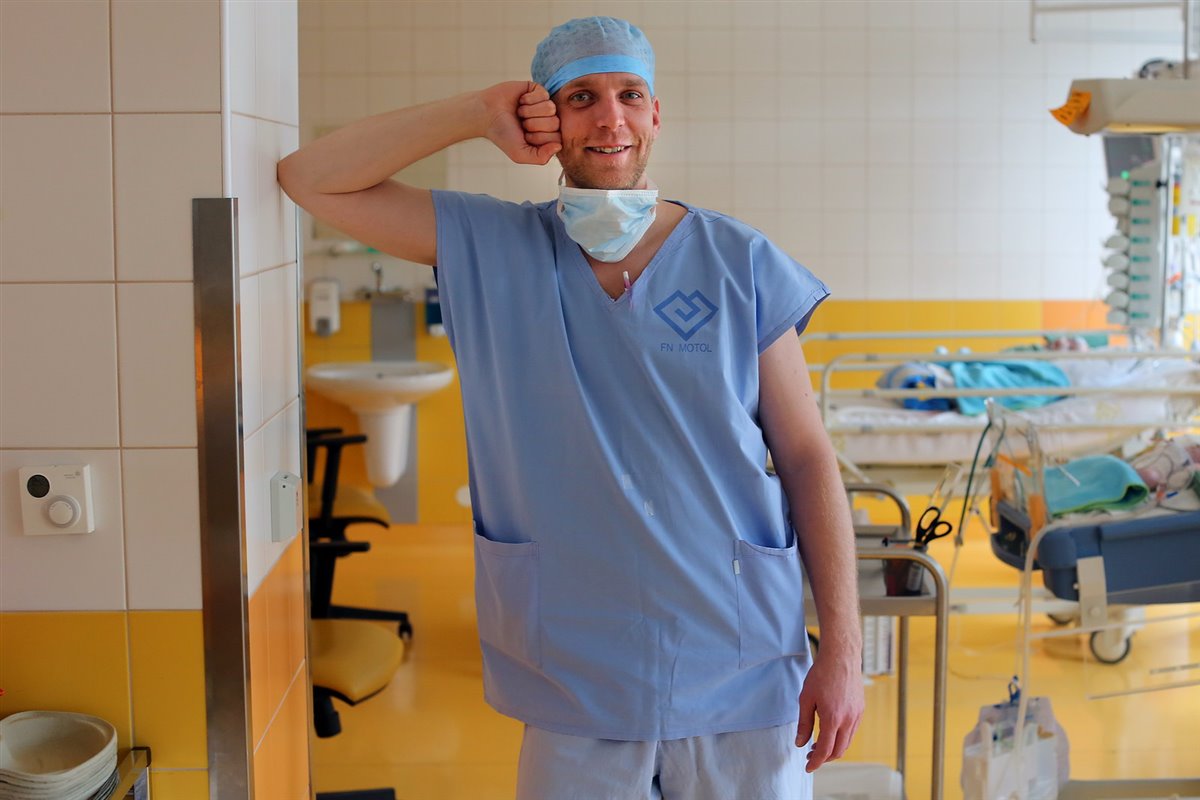
Front line 24/7
Why are the nurses in the front line? The contact they have with patients is not only physical, although that is a huge part of the job, but also emotional, as nurses are the people who are communicating with patients through the toughest of times. They are there to witness the moments of joy and pain. And it is this aspect of their job that is both most rewarding and most challenging at the same time. This is what nurse Lucie from the Children’s Heart Center says about this strong bond that is created between her and her patients:
“I like the contact with children patients, as they always give me optimism and inner strength. They will never stop surprising me by their will to live and survive. There is nothing better than to watch how a health condition of a child gets better, day by day with mile steps.”
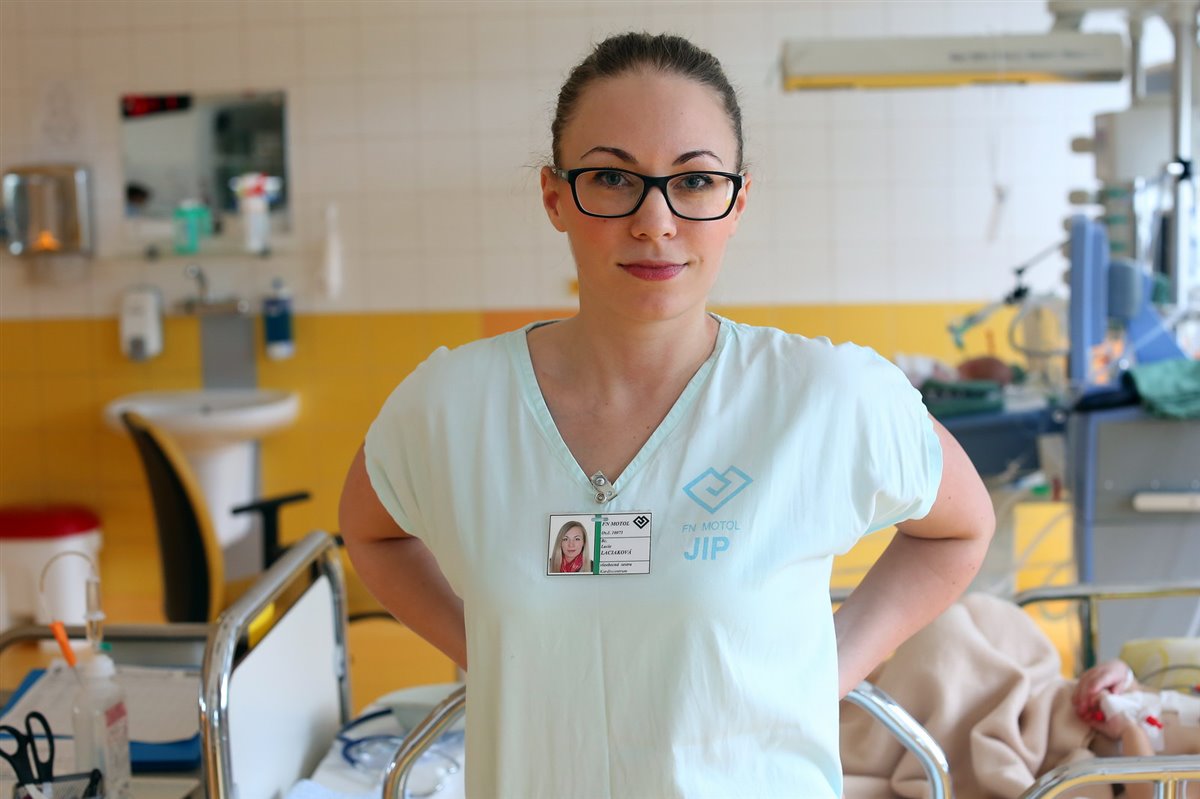
Because of the strong bond between patient and nurse, you can feel the success and happiness of your patients yourself, however, it also makes it so much harder. To add to that, you have to communicate with the families of the patients and experience their emotions and reactions as well. All these moments are difficult to overcome – you need immense mental strength, support of your colleagues and a way how to deal with the stress personally, that it won´t break you. What many healthcare professionals do is setting a goal for themselves that helps them to keep their head up. Ward nurse Lenka from the Spinal Surgery Specialized Center, told us about what her goal and motivation is:
“I personally take my job as a mission. Helping patients and other nurses is part of my everyday work. I am pleased when a patient appreciates the care they receive and thank me for it. That is the best reward I could get. I enjoy seeing that the work we do has a purpose and is helpful to people. When a patient is brought in on a stretcher and after everything they have to go through (the operating theatre, recovery room, etc.) the patient walks out of the building under their own power. Nursing is a very demanding profession and not everyone is fit for the job. Nurses that can do the work make a true team and stand by one another. It is enjoyable to watch this fellowship. They do the most for our patients, and they can predict possible complications. Of course, the whole nursing team can successfully work only in cooperation with doctors and with the help of other non-healthcare staff.”
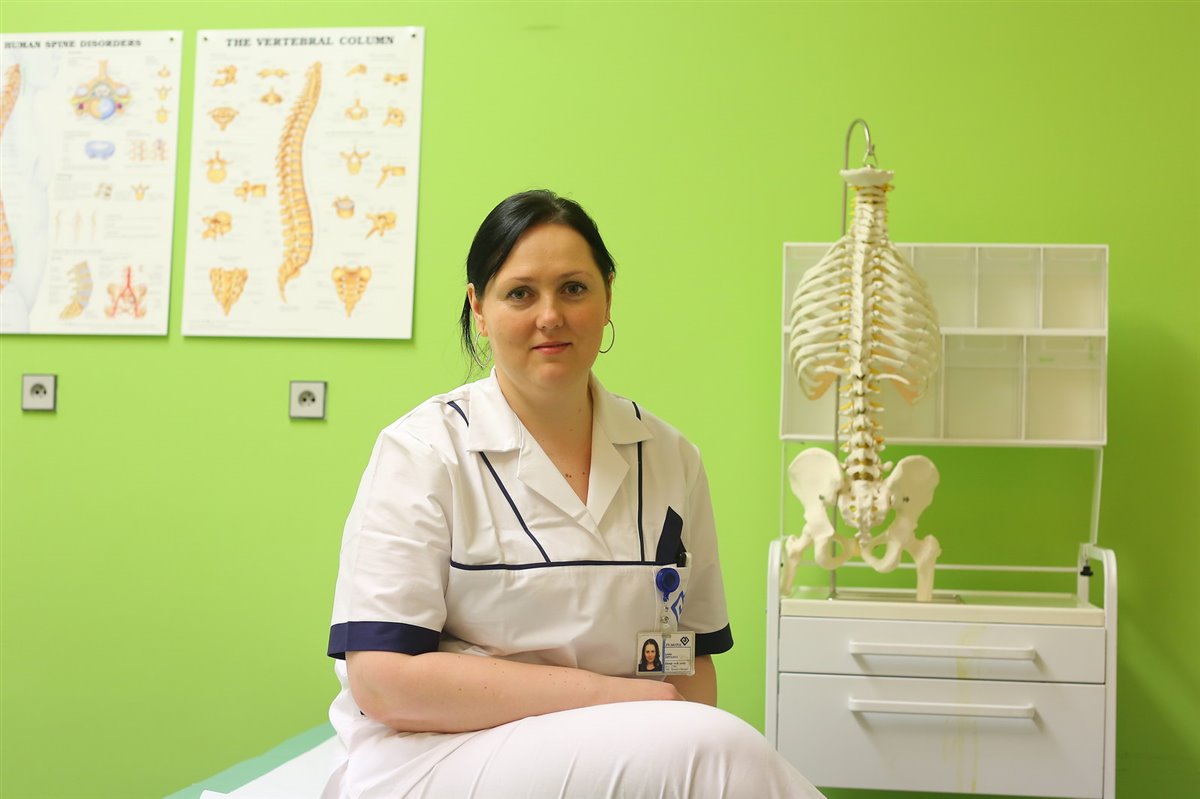
Nurses have to be mentally and physically strong, to withstand all the pressure that is upon them. They need to be empathetic, but able to distance themselves. They need to be a true team player, but at the same time be a strong individual. They have to put others ahead of themselves and pursue their goals. How they do it all, is beyond us. In the end, it seems like it is all worth it, or as nurse Alexandra from the Specialized Center of Anesthesiology, Resuscitation and ICM puts it:
“I decided to learn everything I could by becoming a nurse, and it was one of the best decisions I have ever made. When I do my job, I feel fulfilled, satisfied, needed, and useful. I love that I am part of a team that works on saving our patients’ lives.”

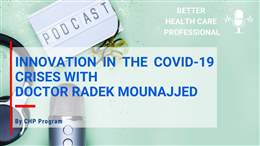








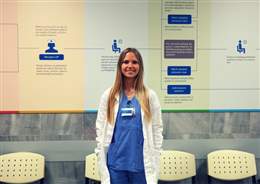




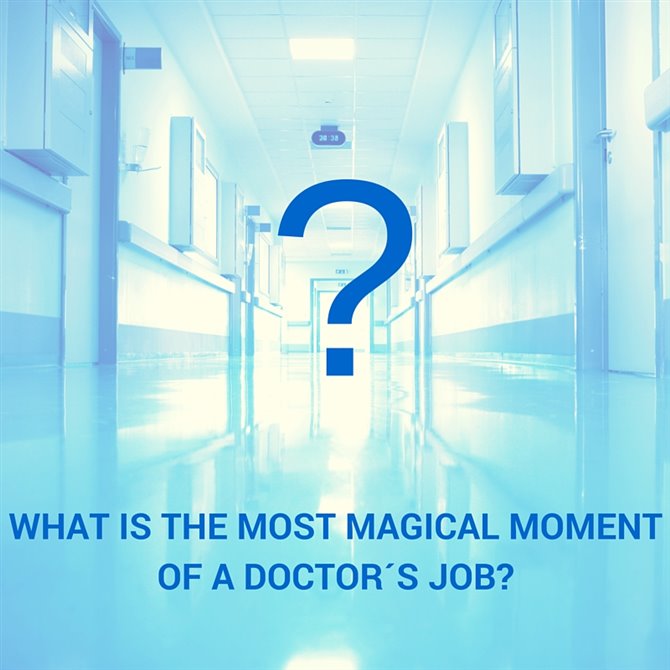
Categories
Behind the Scenes of the University Hospital in Motol
Being a Healthcare Student
Best Adventures While Travelling
Discover the Medical Specialties
Inspiration: Practical Experience of Healthcare Professionals
Obsolete vs. Visionary
The Better Health Care Professional Podcast
Tips and Tricks for Your Successful Career
Top News in Healthcare
Travels in COVID-era